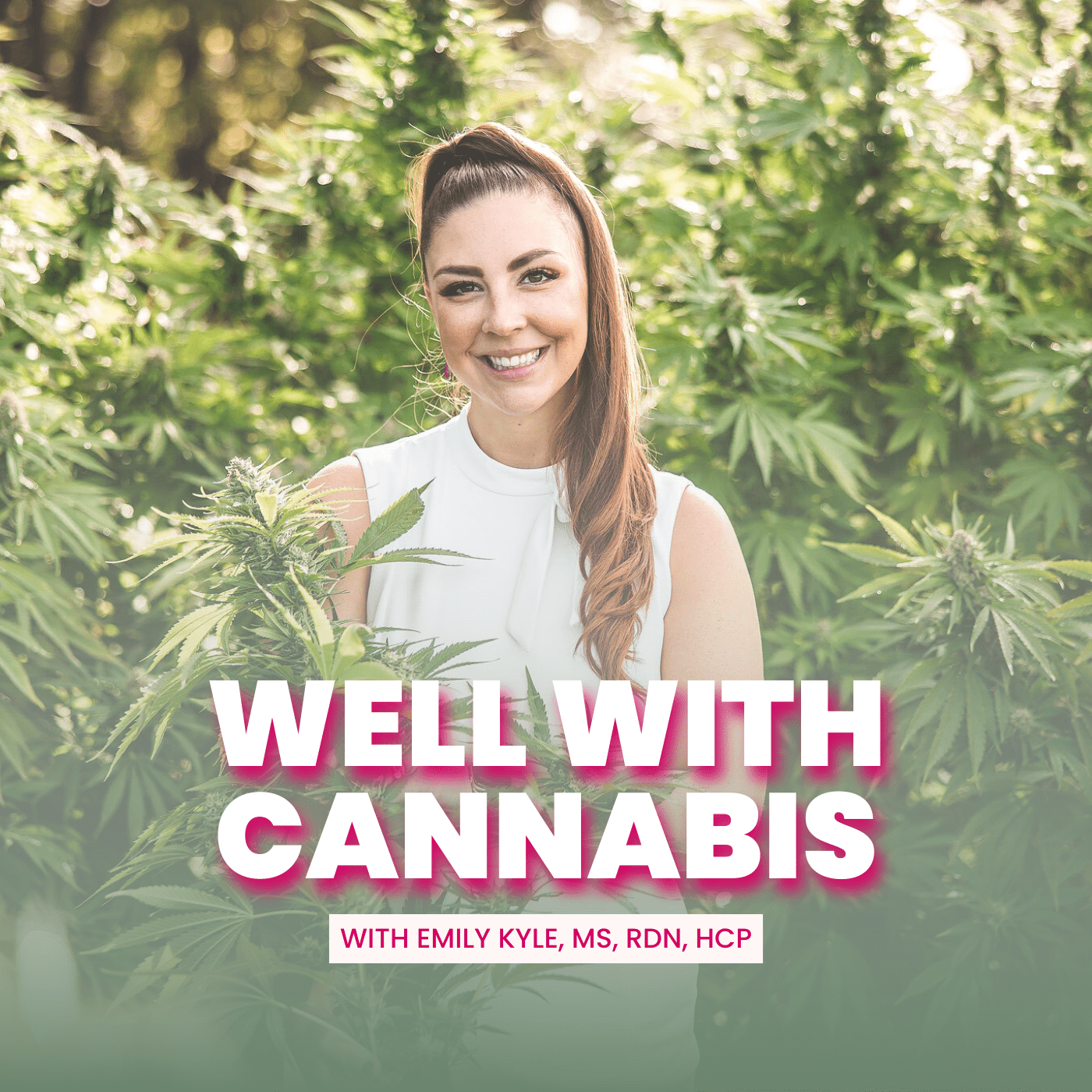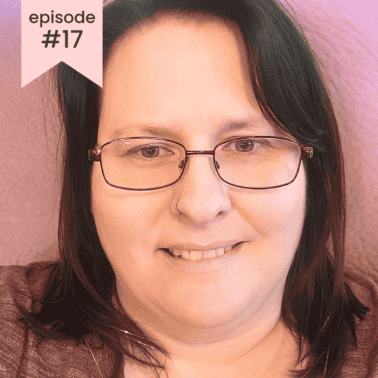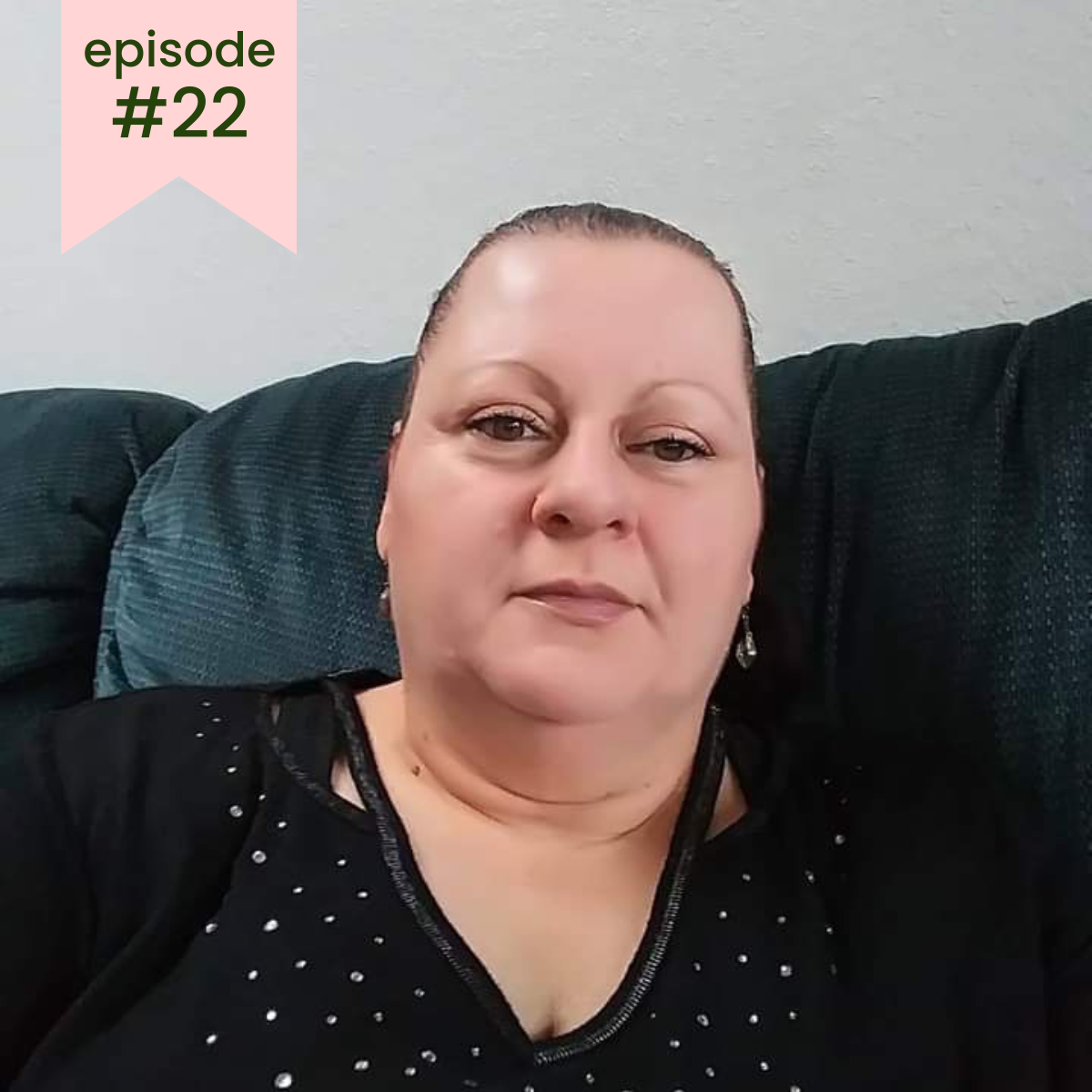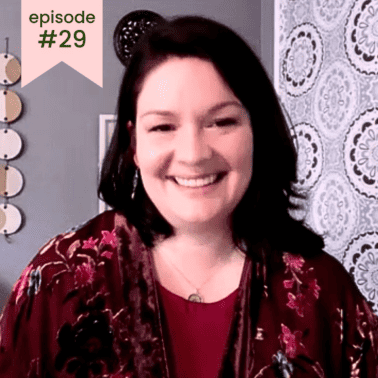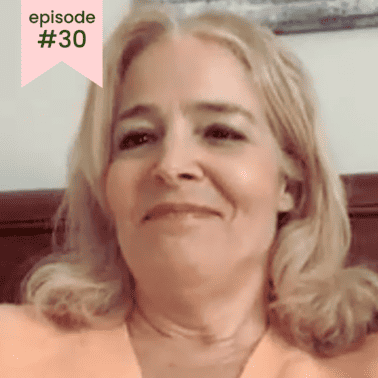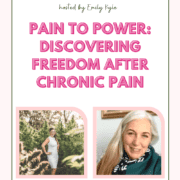In today’s inspiring episode, we hear the remarkable story of Lenor Rivera, a wonderful woman who has refused to let chronic pain define her life. Listen as we explore her courageous journey of resilience, rediscovering joy, and a renewed sense of purpose after finding cannabis and relief after years of battling with pain.
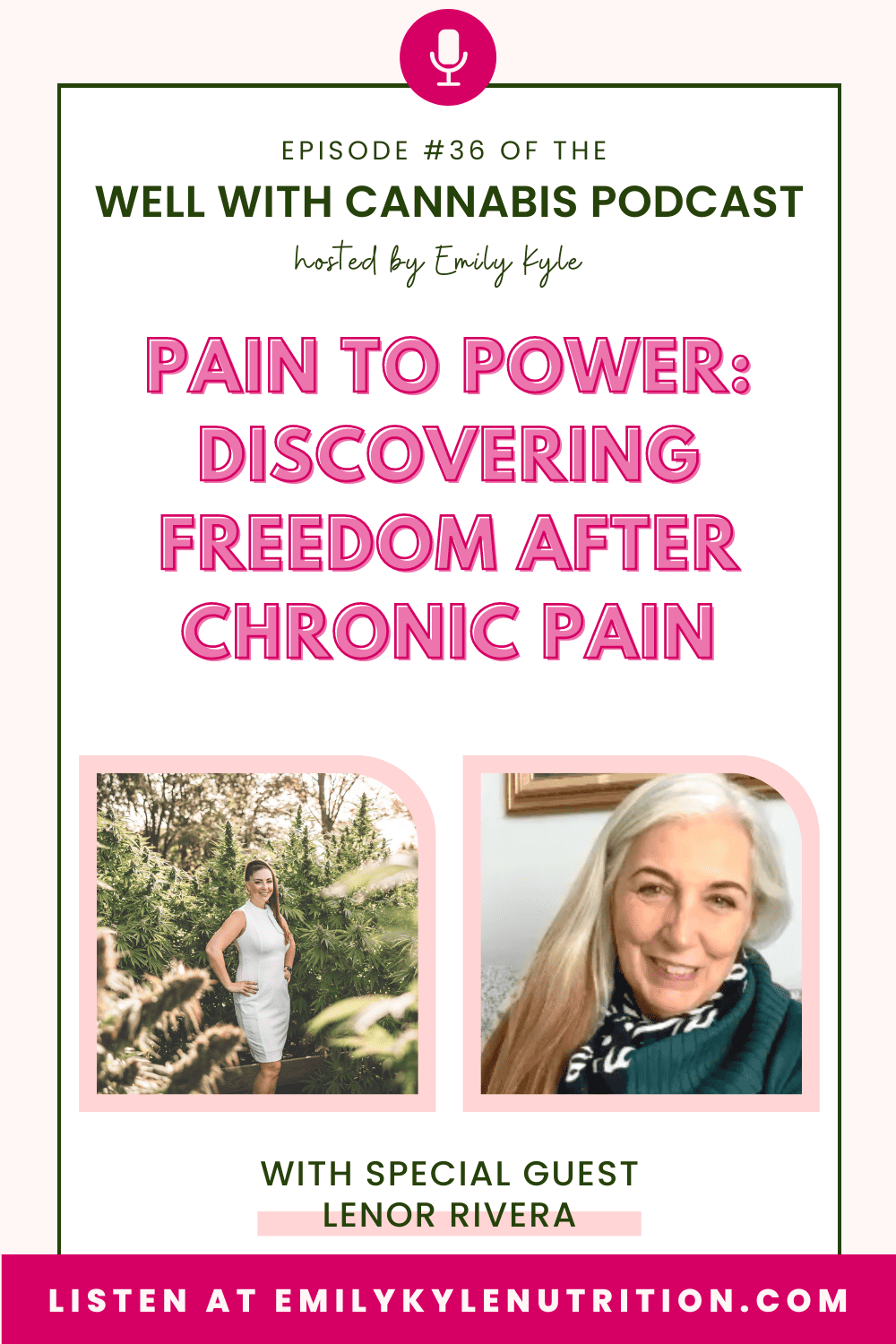
Table of Contents
Features
- Release Date: Monday, July 31, 2023
- Episode Number: Season 1, Episode 36
- Special Guest: Lenor Rivera
Listen To The Episode
Click the play button above to listen to the episode.
Listen to all podcast episodes →
Why You Will Love This Episode
Meet the incredible Lenor Rivera and listen as she shares her journey of overcoming chronic pain and rediscovering a life, in her words, filled with love and joy.
Lenor’s story is one of resilience and determination. For years, she battled with a chronic inflammatory pain condition, migraines, insomnia, and skeletal muscular issues.
The undiagnosed nature of her condition led to her losing her dream job, leaving her in constant pain and limited mobility. With little relief from traditional medications and the side effects taking their toll, Lenor eventually found hope in cannabis.
Two years ago, she met a compassionate doctor who guided her toward using cannabis, and the results were life-changing. Through a carefully curated regimen of cannabis, Lenor has been able to naturally manage her pain, migraines, and insomnia.
Today, she travels around the world, volunteers in her community, plays with her grandchildren, swims regularly, and walks an impressive five miles a day.
Join us as we explore Lenor’s incredible journey of regaining creativity and joy after chronic pain. Her story will inspire you to never lose hope, to embrace alternative solutions, and to live life to the fullest.
Related Episodes
Podcast Episodes
Homeschooling Mom Finds Pain & Anxiety Relief with Cannabis
Podcast Episodes
Overcoming Spinal Cancer: Using Medical Cannabis for Pain
Full Transcript
Lenor: I’ve been told before that I’m very courageous for the things that I’ve done in my life. And I like to tell people that I don’t think it’s about bravery or courage, but rather it’s about love. When you go forward in life in love, there’s this thing that happens with fear. It just… dispels.
Announcer: Welcome to the Well With Cannabis Podcast, a show dedicated to telling the life-changing stories of those who live well with cannabis all while teaching you how to do the same. Meet your host, Emily Kyle, a registered dietitian nutritionist turned certified holistic cannabis practitioner. Emily changed her life for the better with the help of the cannabis plant, and now she’s committed to helping others do the same.
Tune in each week to hear heartwarming stories and gain the knowledge you need to feel connected, inspired, and supported on your own cannabis journey. Whether you’re a new cannabis consumer or a lifetime lover, you’ll benefit from these uplifting tales of real-life journeys that will show you how you, too, can live your best life well with cannabis.
Disclaimer: Hi there. Before we jump into today’s episode, I wanted to share a note on potentially sensitive content. The episodes on the Well With Cannabis Podcast are created for adult audiences only. We will, at times, cover sensitive topics, including but not limited to suicide, abuse, mental illness, sex, drugs, alcohol, psychedelics, and the obvious use of plant medicine. Explicit language may be used occasionally. Please refrain from watching or listening to the show if you’re likely to be offended or adversely impacted by any of these topics.
The information on this show is for informational and educational purposes only. It does not constitute medical advice. If any of the content on this podcast has brought up anything for you, please reach out or speak to a professional or someone you trust.
Emily: Hello, and welcome back to another episode of the Well With Cannabis Podcast. I’m so excited to be here with our wonderful guest today, Miss Lenor Rivera. Hi, how are you? And thank you for joining us.
Lenor: Thank you for having me. This is a wonderful thing you’re doing. Thank you.
Emily: You have an amazing story to tell and quite a detailed one. I am ready to hear all of the wisdom. How did you get here today? What led you to cannabis?
Lenor: Okay. Goodness, gracious. All right. I had gotten hit with a chronic pain condition in my thirties and went into remission in my early forties, so I would say that I struggled with that condition for about six years. When I was 54, I got hit with some blood clots in my leg and found out about a genetic blood disorder. That same year, I had to have surgery to remove my gallbladder and apparently, this triggered that pain response in my body again that I had dealt with in my thirties.
Emily: Oh, no.
Lenor: I had already moved on from that and gone on to live my life. So I found myself in this chronic pain and fatigue state again. My inflammation was way off the charts, so I was tested for lupus and RA. The preliminary test for lupus was positive, but the secondary test was negative. My doctor said he knew the pain was there but didn’t know why. So that was my rheumatologist, an 85-year-old rheumatologist that had been my doctor all through these years. I loved him dearly, like an uncle. So what happened is I ended up losing my dream job, which was a construction director for a non-profit. So it combined my construction skills with my heart.
Lenor: So, I ended up losing my dream job, a non-profit construction director. That job combined my construction skills with my heart, so I call it my dream job. I had the job for about nine months, but this pain and fatigue were really affecting my abilities there, and my CEO asked me to resign. I did because I could no longer do the work that I was hired to do. So that was a really sad thing that occurred in my life because I had taken a lot of my identity from my work.
Lenor: And so I started this journey of managing the pain and running the gamut of doctors, one after another. This went on for years. I was on prednisone and anti-seizure medication that they mixed with it for pain. I was on prednisone for three years and anti-seizure medication for 11 years. It was destroying my body, and I still had no life. I was homebound, like a shut-in, managing pain all day. I went from being this incredibly competent person to sitting in a recliner with my arms supported, managing pain. It was just horrible to have my life go in that direction.
Lenor: Eventually, they found that I had this genetic blood disorder, and I needed to be on blood thinners. I also started seeing a nutritionist. I eat a vegan, whole-food, plant-based diet. And so I started seeing nutritionists, hoping that they could help me with this pain condition. He had a hemp formula CBD he gave me; it was amazing because it relieved my anxiety over certain things. He wanted me to add some animal-based foods to my diet, and I had a lot of anxiety over what it was doing in my body. He just wanted me to add some eggs and some fish, but that was very hard for me. After one day of trying CBD, the anxiety was gone, and I could eat the diet he asked me to eat to restore my health. That was all great.
Lenor: I also ended up in a pain management doctor’s office, and he also prescribed me CBD to buy at a medical marijuana dispensary. It was wonderful because it helped with the pain, but he wanted no THC involved. He treated drug addicts on a regular basis. His specialty was medicine, and he just felt like that was too taboo for him, so I just went with it.
Lenor: My CBD tincture seemed to help, but I was still on prednisone and the anti-seizure medication. At one point, I was prescribed a chemo drug with no cancer diagnosis because they thought it would help. They also prescribed antidepressants, which I wouldn’t take, all to help manage pain. There was one point where I was prescribed 15 different medications. And I’m going to say I didn’t take all of them, but I did try a lot of them. It created terrible brain fog. I could no longer read, I couldn’t be creative; I just couldn’t be myself. I could only manage pain.
Lenor: So my husband and I moved off Long Island. You know how expensive it can be there, and I couldn’t do it anymore with my not having my job. So we sold our house, and we moved to upstate New York, where I met this incredible ER doctor. I was trying to renew my medical marijuana card in New York, and this doctor instructed me on how to use cannabis to the best therapeutic value for my body, how to find that level, and what to do. He introduced THC to me, which I had not had experience with over my lifetime.
Lenor: So I took his advice. I had insomnia, so he taught me to use THC at night for sleeping and CBD during the day for pain. I would have 12 – 15 migraines a month, and he taught me how to use that for migraines to manage pain. He taught me the value of having it built up in my body and not using it just as aspirin as I had been told how to use it before.
Lenor: And this made all the difference. I started sleeping at night. I felt my body healing and recovering. I got off the prednisone. As I increased the medical marijuana in my system, I was able to come off of prednisone for the first time in three years. My doctors and I tried to get me off of prednisone every single spring and summer, thinking increased activity would help. Yeah, he just taught me that I can’t use it like that. It has to be in the system. And that was really important for me to get a visual of what that meant. THC at night, CBD during the day. I’m functioning, living my life off of all of these medications, except for the blood thinner that I have to take because of the genetic disorder that triggered all this.
Lenor: Besides this wonderful doctor, I started following another web-based community. Doctor, can I mention a doctor’s name, please?
Emily: Absolutely.
Lenor: Dr. Dustin Sulak from Maine. I listen to his webinars every month and I’ve learned amazing things. I’m hoping to take a certification class with him in the future so I can really get the ins and outs of what’s happening in my body. I spent three years just really managing pain and learning about this pain. It’s probably taken about a year of getting off the medications, adding to a place where my husband and I decided it would be best for me to be out of the cold.
Lenor: We had a friend in Aruba. Two years ago, we decided that I was going to go to Aruba for the winter, for three months. I went to Aruba in the winter of 2021 with a walker. I was walking with a stick, not necessarily a cane because that made me feel too old, but I agreed to take the walker through the airport because I was traveling alone. I used that walker when I was going there, and then I started walking and was eventually able to walk up to five miles a day. I also went swimming for about an hour a day. I came back healthy, strong, and ready to live. It was just incredible. I left the walker there; no walking stick anymore, none of that. Last year I went again for the same amount of time and did the same thing to really boost up my body.
Lenor: I have learned that mild exercise – I wouldn’t call that moderate because it’s not strenuous because I do it at my own pace – and the help of medical marijuana has helped me to live my life again. And so I think that’s the story in a nutshell.
Emily: The most beautiful story.
Lenor: I want everybody to know it, yes.
Emily: People have to know that.
Lenor: I was this close to using a chemo drug for pain relief and instead went entirely in the other direction, and it’s a miracle in my life.
Emily: Imagine if you had never met that doctor; that is so special.
Lenor: Yes. It was giving some relief, but it wasn’t helping all the way around. It wasn’t at that level that they talk about, that therapeutic level. And I can even understand how too much could be harmful, so you really need to see where that can be for you.
Lenor: I did have a problem with the THC at first. It caused me incredible anxiety. I felt like I could feel the blood in my veins, which would panic me. I didn’t know what that feeling was. My daughter actually instructed me to use CBD to counteract that. And so now I use more one-to-one at night to go to sleep. Maybe a little more THC than one-to-one, but that helps get rid of that anxiety. I know when it’s too much and when it’s just enough now.
Emily: Now, were you ever scared to try cannabis, or did it just seem natural because your first introduction was from a doctor?
Lenor: I was not worried because I had had that CBD experience that alleviated my anxiety. But when I took the THC, it was for a migraine. I was freaked. I woke up with migraines, so it was early in the morning, and I didn’t know what to do. I called my daughter, and she told me what to do. That was wonderful.
Lenor: And now I’ll tell you, I do love your site. I love to make gummies. I’ve made them about four times now, and I think I’ve perfected what I’m doing with that.
Emily: Practice makes perfect there.
Lenor: I’m really hoping that things change here in my state – I’m in Pennsylvania – so that I can do more to grow for my own use and keep that level going in my body because it is so expensive for me. I would say I probably spend about $150 to $200 a month, and right now, I can afford that, but I’d really love to be able to take care of myself that way.
Emily: Absolutely. And growing is just the easiest way to not only save money, but I don’t know if you’ve seen a growing cannabis plant yet, but the opportunity to grow one is very magical and special and full circle. I hope that is an option for you soon. It would be perfect.
Lenor: My brother is in New York, dealing with insomnia and going crazy. I’ve lived my whole life with insomnia. He called me up and asked, “What do you do about this insomnia? I can’t live like this!” Because of the resulting use of medical marijuana, he started growing his own, which he’s allowed to do there, and we’ve made gummies together. That has helped him, but it’s also taught me a lot about how to do that. There are other sites that are just wonderful for instructions on how to grow and what to do with it and all, and I’m looking forward to doing a nice little thing for myself someday.
Emily: Absolutely. Now that you’re feeling so well, how have your relationships been with your husband and your kids, and your brother? Has it made a big difference?
Lenor: Oh, it has made a difference. I live on the same block with my daughter. I moved to Pennsylvania to be near her; she has little ones. My husband is still working in New York. He’s doing what he loves, working in a men’s drug recovery residential place.
Emily: Wow.
Lenor: He cooks for retreats that they have there and works with the men in the program. This work is so good for his heart, as well. We’re very connected to humanity and compassion, just doing things. So he’s still there, but that’s okay because we do see each other twice a month. He’s doing what he loves, and I’m doing what I love, and when we get together, it’s just wonderful. We go on vacation or come here. He was just here for the weekend for my hand surgery to help me out, and I’ll be going to him. He’s going to have a reverse shoulder, so I’ll help him out.
Emily: Now, may I ask a little bit about his job? Has there been any friction with what he does and using cannabis, or is there no issue because it’s medical?
Lenor: Yeah, he doesn’t use it and hasn’t even tried it yet. I’m hoping he will, especially now with the surgery coming up, but they have strict rules there. I think that helped add to my decision to move here. I bought a house for our family to come and be able to visit that’s about eight hours from where we lived, and then I just decided to move in here because I really needed the freedom in my life to go forward in this direction. And they still believe that cannabis could hurt, not help, that environment. I don’t agree with that because I see how much it’s helped me. Even with anxiety, not that I lived my whole life in anxiety, but I did struggle with it over the years.
Emily: That’s tough. It’s a tricky situation to navigate. I hope that it’s easy for you guys as you move forward, but all in all, he just has to be so happy that his wife feels so much better.
Lenor: Oh, he is, absolutely. And I’ve always been very independent, strong, healthy and able to do things. He’s loved that about me; seeing that happen again is wonderful. And for my kids too. The best thing is to have conversations with my three daughters and their husbands about my use of medical marijuana. I say that my mother’s rolling over in her grave right now because this was taboo in our house.
Lenor: I had this very open conversation with my daughters about it. And I have one daughter that is following the same path I did. In her 30s, she was stricken with this pain condition that’s the same as I experienced. I’m always hoping she’ll have remission, and she does try to use medical marijuana as well. She has a card in New York. However, it’s so expensive for them. She can’t work. Life on Long Island is so hard, so we do what we can for each other.
Emily: How was that initial conversation with them? A lot of people are scared to bring it up with their families. Were you scared to bring it up, or did they just want you to feel better?
Lenor: No, I think they were so happy to see the results. I talked to my oldest daughter all along because we were going through similar symptoms together. But the other two were just so happy to see the improvement in my life. Honestly, they had this mother that did everything, and I even went back to school in my forties for an engineering degree. So I was going to school at the same time my oldest daughter was in college, and they had this mother that was like that and then suddenly cut down. They’re very happy for me. I can read; I can paint; I like to sew. I could do all of these things, but the medicines I was on cut all that creativity out of my life.
Emily: It’s a common theme that so many people bring up. We see these very obvious benefits from cannabis, from pain relief to anxiety relief, but then these little extra special things happen, too: increased creativity, increased exercise, these things we don’t always necessarily think of that can be attributed back to cannabis. It’s really magical to see everybody experiencing those together. Who would have thought that cannabis could enhance creativity in a way that brings so much joy to your life?
Lenor: Exactly. Yes.
Emily: I love doing these interviews because everyone always has the same sentiment. I love talking about it and showcasing that when used responsibly, cannabis can impact your entire life and increase the quality of your life.
Lenor: Yeah, I share that every time I go into the dispensary, I talk to the people that are helping me. I tell them how much this has changed my life. I’m always so excited about it because it really has. I wish the stigma weren’t there because it can be so good for people, and doctors, especially on Long Island, are really coming around to the use of it.
Lenor: For instance, even my hematologist’s PA was training for certification and dispensing the medical marijuana cards and talking to people about how to use it. I think it’s really great when you have doctors that are trying to alleviate people’s pain and they know that this could be a thing now.
Emily: So, have you been open and honest with your doctors? Because I know a lot of people really struggle with that.
Lenor: Yeah. Yes. It’s not as accepted as here. I’m near the Pittsburgh area of Pennsylvania, and what I found was when I first met my new primary care doctor and talked to the clinician about what I do, she wrote “drug use” in my chart. The next time I saw my doctor, I said, “You really need to correct this because I’m not okay with you having a “drug user” in my medical report. I use this medicinally, and I have a card for it. I consulted with doctors about it, and they prescribed it for me. Because of this, you cannot tell me that I’m a drug user. I never use drugs. This is medicine for me, and let’s move forward that way.”
Lenor: So he did take that off of there. My other doctors have asked who prescribed it. It’s not about if I was doing this on my own. That’s always a thing with the medical community. I have great respect and great regard for the medical community, how we went through what we’ve just gone through, and people are still willing to become nurses and doctors.
Lenor: I do find that I do need to be careful of how I address it. It’s not this open conversation. I explained that a doctor prescribed this for me, and along the way, a few doctors prescribed it for me, and now I’m just continuing with what they gave me. And so that eases the conversation a little better, but yes, you have to be very tactful about it here.
Emily: Do they ever ask you if it makes you feel better? Before they even ask who prescribed it, do they ask if it helps or makes a difference?
Lenor: Some doctors are very happy for me that I found that niche because I still am limited in my day, or the hours of good in the day, so they know that, and they see that, and other ones are very dismissive. “I guess, if that works for you,” that kind of dismissive thing. I love the way it’s an open conversation, though, with some of my neighbors and my family.
Emily: That was going to be my next question. In your personal life, do you feel comfortable discussing it with others?
Lenor: Oh, yeah. Yeah, I do. I’m so thrilled to be here with you right now because I feel like your work is so important. It’s all about humanity, easing other people’s pain. I love that. It’s getting that word out there. Maybe in five or ten years, it won’t be like this.
Lenor: I feel like I’ve been a trailblazer my whole life in that sense, working in a man’s field in construction, engineering, all of that. And now again, I think I’m still living that part of my life as I was meant to live, which is to be that trailblazer or just different.
Emily: It takes a lot of bravery and a lot of courage to be here doing this today. Thank you so much for being that trailblazer and sharing your story. My hope is that somebody listening on the other end who struggles with chronic pain will hear your story, will try cannabis, see if it works for them, and, God willing, will change the outcome of their life. I thank you so much for being here and sharing that, and hopefully, it reaches someone who really needs to hear it.
Lenor: I’ve been told before that I’m brave; I’m very courageous for the things that I’ve done in my life. I like to tell people that I don’t think it’s about bravery or courage, but rather it’s about love. When you go forward in life and love, There’s this thing that happens with fear. It just dispels. Part of that philosophy for my life led me to Iraq during the ISIS crisis, either by myself or with my husband, and I was going regularly until COVID hit.
Lenor: So even with my disability, I was able to go. I’m in pain here; I’m in pain there. Can I make a difference in someone else’s life? And people would ask, “Weren’t you afraid?” I was never afraid. I went in love, and love dispels all fear. Even if I’m anxious, I think of something I love, someone I love, what I love to do, anything. I embrace that, and the fear goes away.
Emily: Oh, that is beautiful. Thank you so much for sharing. I want to be respectful of your time. I have four questions that I ask all of my guests. Are you ready for them?
Lenor: Yes.
Emily: All right. The first one. We’ve already touched on this a little bit, but what are you most proud of in your life?
Lenor: In my life? So I would have said my three daughters, and I’m very proud of them; in my life, I think it’s being an overcomer in many life positions, meeting a challenge, and seeing it through.
Emily: Yeah. That’s perfect. A little bit different, off-course. What would your life look like today if you had never found cannabis?
Lenor: Oh, I know what it would look like. It would be exactly how I lived for three or four years, just managing pain all day, virally being crippled by it, and not being able to have joy in my life – reading, writing, just being around people. I’d have a friend that would pick me up once a month. We’d go to the stores, and that was it. That’s how I got out of the house. It was tough, and I know what that looks like, and I don’t ever want to go back there again.
Emily: Oh, no. If you could go back 10, 20, or 30 years ago and give yourself a little piece of advice regarding cannabis – or not – what would it be?
Lenor: Don’t worry so much. It doesn’t add to the situation. It only takes away. It robs you of the day. It’s going to be okay. I think that’s probably one of my biggest things. I think what’s happened, that has led me to not live in fear but living in love. The other thing about not being judged is that it opens the doors for so many other things when I allow myself not to judge where another human is coming from. It opens the door for action, love, compassion, and just making a difference in people’s lives. I think that pretty much wraps it up.
Emily: That’s beautiful. The very last question, then is, if you could be remembered for one thing in the cannabis space, what would it be?
Lenor: I would want to be remembered for encouraging people, making a difference in their lives. I want to think that I added to someone’s life through encouragement, compassion, and love.
Emily: I feel like we did that here today; I feel like my heart is warmed. I enjoyed this conversation so much and am so happy that you are in this beautiful space, spending time in Aruba, enjoying your husband and your kids. Thank you so much for sharing that with us. Any last words of wisdom for our listeners?
Lenor: I think I’ve said a lot. Have hope. Have hope. There’s an answer out there, and keep looking until you find it.
Emily: That is perfect. The perfect way to end this. Thank you so much for joining us. I hope you have a wonderful day.
Lenor: Thank you. You too. Be well.
Announcer: Congratulations, you’ve finished another episode of the Well With Cannabis Podcast and are one step closer to discovering how you, too, can live well with cannabis.
Thank you for listening in today. We hope this episode has been a helpful and informative one. Please visit emilykylenutrition.com for more information on today’s show, show notes, guest information, recipes, and other resources.
If you want more support and encouragement on your cannabis journey, please consider joining the private Well With Cannabis Community. In this group, you can connect with like-minded individuals focused on improving their health and wellness through cannabis.
Join the group today to continue your journey of wellness together!
